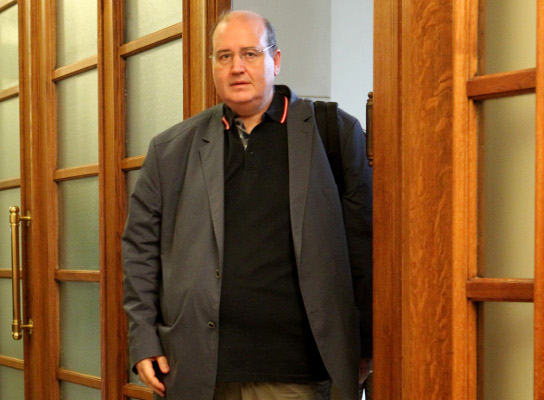

Πατήστε εδώ. Θα μεταφερθείτε εκτός ιστοτόπου ώστε να δείτε το βίντεο

05-09-16 Nikos Filis stresses importance of foreign language learning
Education, Research and Religious Affairs Minister Nikos Filis opened a series of seminars for the training of foreign language teachers, with hundreds of educators in attendance at the ministry.
“This ministry is not an administrative machine. It is an institution that organises learning, and that means it must work with educators, who are the soul of the school,” Filis said.
“The element for an educator to keep offering, which has been absent in recent years, is continuing education. A degree is not enough, because life evolves and so does educational practice, so teacher training is necessary to continue to fulfil one’s duties in a contemporary and adequate manner,” Filis said.
The minister highlighted an initiative to begin language training among pre-school students, and first graders at all schools with four or more teachers will have English-language lessons.
Secondly, a uniform foreign language studies programme will be linked to a Certificate of Language Aptitude, based on the six-levels of foreign language proficiency of the Council of Europe - Common European Framework of Reference for Languages: Learning, teaching, assessment (CEFR).
Thirdly, there will be student foreign language aptitude evaluations, in line with the programme of studies and in preparation of the State Certificate of Language Aptitude. Soon a related Ministerial Order will be issued regarding junior high schools, and later for high schools.
The main issue for parents, Filis conceded, is whether their children can learn a foreign language well at school or whether they must still resort to costly private tutoring, and the state must offer a convincing answer. The state is aiming for the former, he underlined.
“The learning of a foreign language is necessary in a globalised world. It is necessary for society to develop a positive stance toward other nations, other languages, the different, which surrounds us and is in our country, at the same school desk. Foreign language learning expands the spirit and creates the consciousness that we are citizens, not only of Greece, but of the world.
